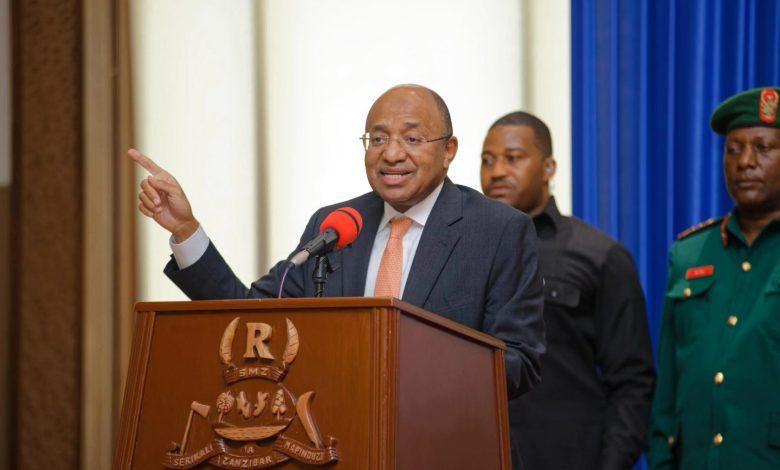Africa-Press – Tanzania. ZANZIBAR President, Dr Hussein Ali Mwinyi, mid this week launched the Zanzibar Energy Policy 2025 and the Zanzibar Power Master Plan 2025–2050, pledging reliable, affordable and sustainable energy while warning against rising acts of sabotage targeting electricity infrastructure.
Dr Mwinyi condemned the theft of eight electricity transformers reported within a month, describing it as a direct attack on national development.
“These are people who know what they’re doing. I want everyone involved to be punished,” he said after the Minister for Water, Energy and Minerals, Mr Hassan Shaibu Kaduara and his Permanent Secretary, Mr Joseph Kilangi, highlighted growing vandalism.
The new policy, President Mwinyi said, marks “a turning point” in efforts to secure energy as the backbone of Zanzibar’s social and economic transformation.
He stressed that without reliable power, the isles cannot achieve the 2050 Development Vision, implement the ruling CCM manifesto (2025–2030), or grow a competitive blue economy.
For decades, Zanzibar has relied on submarine cables importing electricity from mainland Tanzania. But with rising demand, ageing infrastructure and frequent outages, the need to diversify energy sources has become urgent.
The new framework, he said, aims to expand access in rural areas while driving investment in renewables such as solar, wind, biofuels and gas. It also supports clean cooking initiatives to cut health risks and environmental damage.
Launched alongside the policy, the Zanzibar Power Master Plan 2025–2050 maps out electricity demand across Unguja and Pemba, guiding investment in large-scale renewables, storage technology and modern distribution systems.
“Our ambition is to increase access to modern energy, improve efficiency, attract private investment and build resilience against climate change,” said Dr Mwinyi.
He added: “This is the start of a new journey towards safe, clean, affordable and sustainable energy for current and future generations.”
Mr Kilangi said for the first time, Zanzibar’s energy policy allows private-sector participation in power generation and distribution, including net metering, where households and businesses can feed surplus renewable power into the grid.
Regulations to facilitate the programme have already been drafted.
He also cited upcoming initiatives such as an Energy Efficiency Strategy, a national renewable energy framework and an Energy Act to strengthen governance, reduce technical and commercial losses and promote modern energy use.
With the policy, master plan and related strategies now in place, Zanzibar expects to expand electricity access, strengthen supply reliability, reduce import dependency and open the sector to private investment.
Representing development partners, Dr Rhonda Jordan Antoine, Senior Energy Specialist at the World Bank, praised the policy, saying it is a “blueprint for transformation” that addresses Zanzibar’s vulnerabilities while supporting climate-resilient growth.
“The World Bank is a steadfast partner to the Revolutionary Government of Zanzibar,” she said. “Our portfolio, approaching 400 million US dollars across sectors, reflects our commitment.
The Zanzibar Energy Policy 2025 is more than a document; it lays out a credible pathway to universal access and robust economic growth.”
She highlighted the Bank’s 142 million US dollars Zanzibar Energy Sector Transformation and Access Project (ZESTA), which is already financing a 132kV transmission backbone, new substations at Makunduchi and Matemwe and an 18MW solar plant at Makunduchi.
For More News And Analysis About Tanzania Follow Africa-Press







